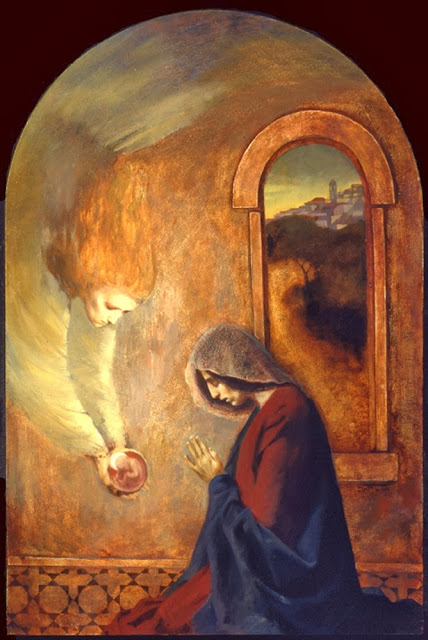A sermon for the Third Sunday of Advent, St Peter’s Bramley.
The last two Sundays we have looked at hope and peace. This third Sunday of Advent we’re looking at the idea of Joy, and why that cannot wait. But in other Christian traditions, this is the week that the Church thinks about Mary the mother of Jesus, which is why our Gospel reading is part of her story. The two – the theme of joy and the story of Mary – are closely woven together.
One thing that strikes me is that whenever we meet Mary in the Bible she seems to be moving from one place to another. Her life, like that of Jesus himself, was one of constant movement. Or perhaps we should say of constant pilgrimage. And that’s a big difference.
You may think of pilgrimage as a group journeying to a holy place, such as Jerusalem, Rome, Compostela or Lindisfarne. But pilgrimage can also be a way of understanding our own walk with God through life, wherever he takes us. Let’s look at Mary’s pilgrimage, where she encountered difficulties, and also where she encountered joy.
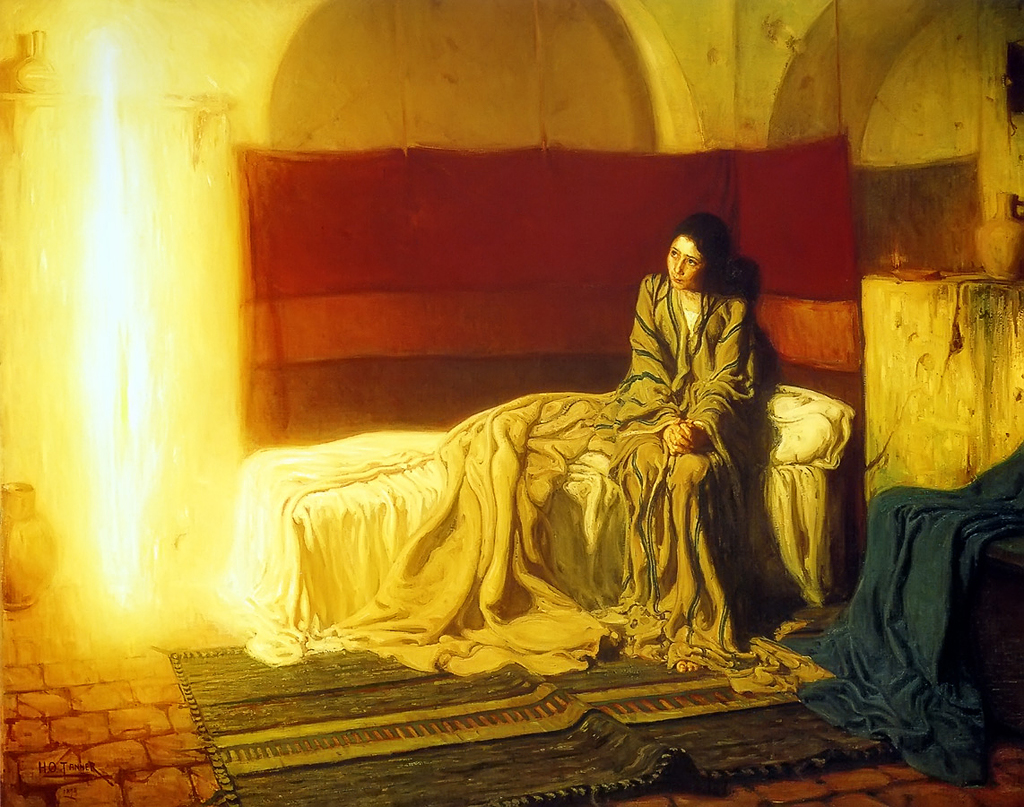
We first come across the young Mary in her home town of Nazareth when the angel tells her she will become pregnant with Jesus. At first she is puzzled, but quickly accepts it – “let it be to me according to your word”.
Immediately we come to Mary’s first journey. There’s no mention of her even telling Joseph of the pregnancy, instead we see her hurrying to visit her relative Elisabeth who is also expecting a miraculous baby. The word ‘joy’ may not be there in the text, but the idea is. C S Lewis, who called his autobiography ‘Surprised by Joy’, defines joy as a state in which “to have is to want, and to want is to have”. Expecting a son becomes, with joy, the reality of having him.
We can imagine, then, that Mary was bursting with joy and had to tell someone, someone who would perhaps understand her better than her fiancé would. ‘She went in haste’, it says – this joy, and this news, certainly could not wait!

When she reaches Elisabeth’s house, there isn’t even time to put the kettle on. “As soon as I heard the sound of your greeting”, says Elisabeth, “the baby in my womb leapt for joy”. Note that – even the unborn boy knew what was happening, and leapt for joy. Elisabeth herself cannot contain her joy – she was filled with the Holy Spirit and exclaimed loudly “Blessed is she who believed that the promise made to her by the Lord would be fulfilled!”
Mary’s own song in return is full of confidence and joy. “My spirit has rejoiced in God my saviour … from now all generations will call me blessed”, as indeed we do, these words still said or sung at evening prayer every day.

Shortly before Elisabeth’s baby is born, Mary goes home. We’ll come back to her in a minute. But what about Elisabeth’s husband Zechariah? He could tell his own story of an encounter with an angel who announces that their first son will be a great prophet called John. But he is struck with dumbness until the day of the child’s naming ceremony. Unlike Mary, he does have to wait to tell his story! His own joy is in tension with the inability to express it. Yet when his silence is ended, it says, his mouth is opened, his tongue freed and he began to praise God. Thus fulfilling that promise of Isaiah we heard from centuries earlier – “the tongue of the speechless shall sing for joy!” When a baby is born, joy cannot wait.

Back to Mary. We all know the story of the journey from Nazareth to Bethlehem. And this is where it gets hard. Unfortunately, one thing that could not wait was the census, and another was the imminent birth. It cannot have been an easy journey, several days by donkey in the winter or maybe early spring, with all the discomfort of late pregnancy. Is she feeling pleasure during the journey? Probably not.
Could she be feeling joyful, though? As we have seen, that is a different question. The anticipation of bringing the promised Messiah into the world may well have been more than enough to leave her with just the sort of inner peace and joy that allows someone to cope with life’s difficulties. In the words of the prophet Nehemiah, ‘the joy of the Lord is your strength’. And keeping her going too were Elisabeth’s words – “Blessed are you among women”.
And so to Bethlehem. For Mary, the discomfort of the stable and the pain of childbirth. And also the joy that all new parents feel when it’s over and the baby gives his first cry. But there is more to come…
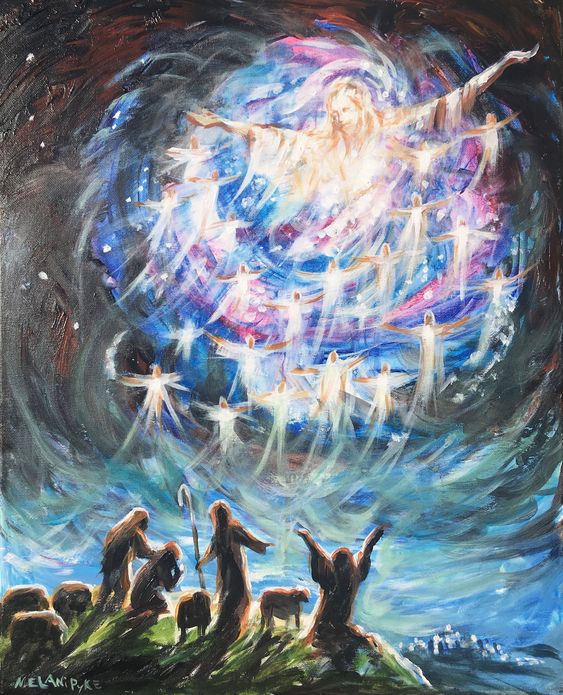
After Mary’s unwanted pilgrimage to Jerusalem, it’s time for her to receive pilgrims from elsewhere. First the Shepherds. They have encountered the angel of the Lord out in the fields, who tells them of the new birth – “news of great joy for all people”. Watching the sheep could wait, this night, but going to see the Saviour could not. And after they have seen him, they again return into normal life ‘glorifying and praising God’. Their pilgrimage was short, but life-changing.
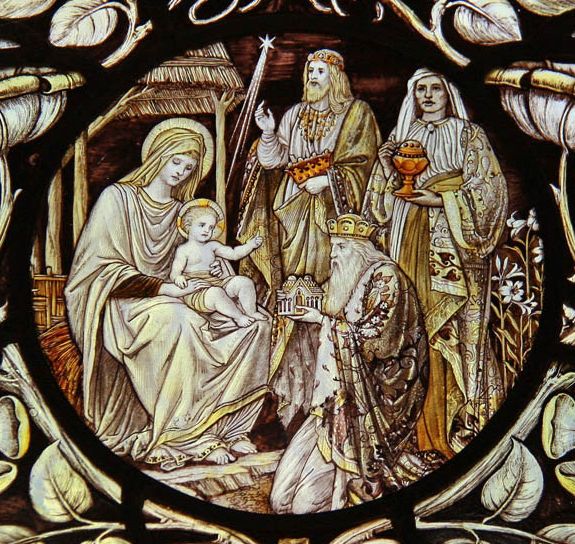
cc-by-sa/2.0 – © John Salmon
Next come the magi, wise men, kings, whatever you call them. Their pilgrimage has been an even longer one across desert lands, with only a vague idea that they would find a new king in Judea. But this is enough to keep them going, until, when they reached the house, and – mark this – even before they entered it – they were ‘overwhelmed with joy’. This spiritual joy is the anticipation of meeting Jesus, even before they see him.
Then, finally for now, there is the dedication of Jesus in the Temple, when the old prophets Simeon and Anna are both filled with joy as their own long-held expectations are fulfilled in seeing the Christ-child.
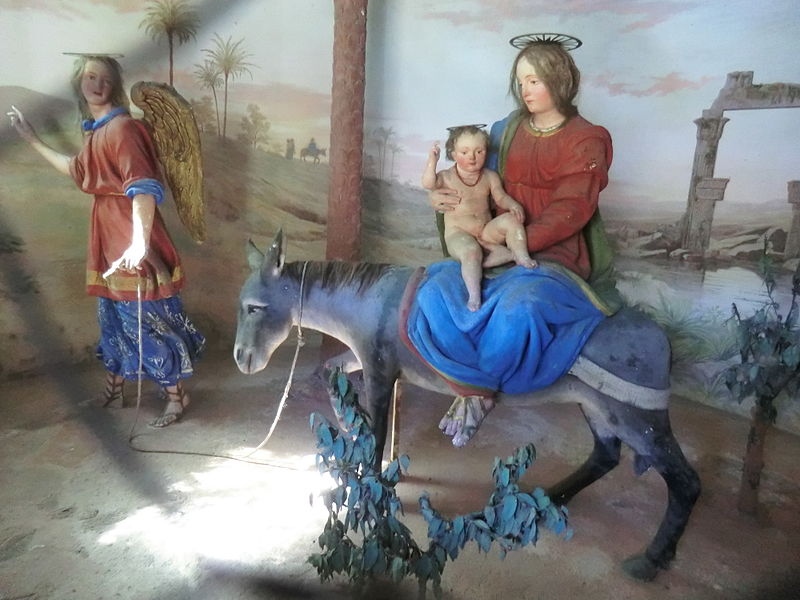
Photo by Mattana cc-by-sa 3.0
So Mary has travelled far in her own land, known both pain and joy, and Jesus is still a young child. But her pilgrimage is not over. There is the hurried escape to Egypt to flee persecution, and some years later an even longer journey back north to Nazareth. What keeps her going during those difficult years? Surely this: ‘Mary treasured all these words and pondered them in her heart’. It is the love of the Word of God, the memory of those times when we have encountered him, treasured in our hearts, that through our pilgrimage of life keeps us going with a quieter inner joy that is still strong enough to cope wherever our pilgrimage takes us. Joy, like gentleness and patience and other qualities, is one of the fruits of the Holy Spirit, something not restricted to the chosen few but a state of mind that we can all expect to grow out of our walk with God.

Let’s leave Mary with one more joyful scene, not found in the Bible but one we can deduce from experience: One of my friends, whose son had been something of a black sheep in his youth, and she hadn’t seen him for years, was startled one day to find him knocking on her door to present a grandson she hadn’t even known about. What joy there was then, and what joy there must have been in Mary’s old home when she and Joseph finally get back to Nazareth with Jesus, by then perhaps two or three years old. What would her own mother’s reaction be at seeing her daughter for the first time in years, safely returned home with her young grandson?
So the journey has come full circle: back to the family home, after a lengthy and eventful pilgrimage. Often God does that: he takes us away from the familiar, one way or another, in order to test us, gift us, bring us closer to him, and then bring us back as changed people, ready to serve him with joy.
And so, as you approach the mystery of the birth of Christ this year, whatever the difficulties you face on your pilgrimage at present, may you come into his presence with the spontaneous joy of Elisabeth, the awe-struck joy of the shepherds, the overwhelming joy of the magi, and the deep joy of Mary his mother. This is the joy that cannot wait. Amen.
